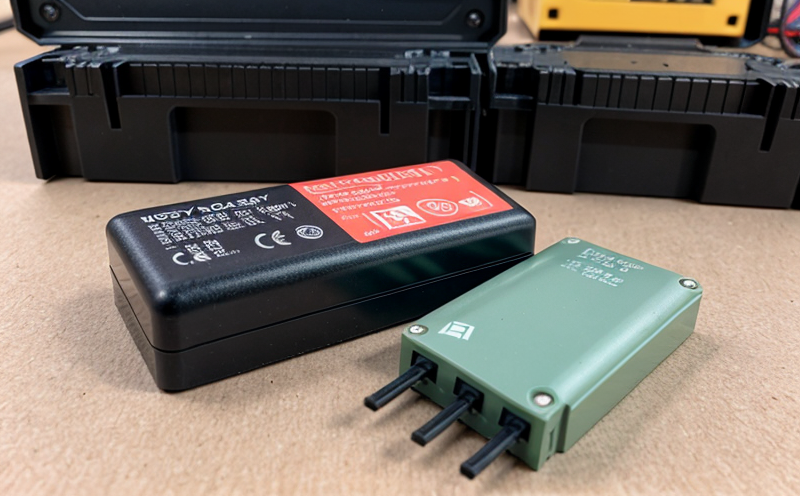UL 2580 EV Battery Pack Performance and Safety Testing
The UL 2580 standard is a critical benchmark for ensuring the safety, performance, and durability of electric vehicle (EV) battery packs. Compliance with this standard not only enhances consumer confidence but also ensures regulatory adherence and market access. The UL 2580 test suite encompasses a series of rigorous procedures aimed at evaluating various aspects of EV battery module and pack design, manufacturing, and functionality.
The primary focus of UL 2580 testing revolves around preventing fire hazards, ensuring structural integrity under extreme conditions, and maintaining operational safety. This comprehensive approach ensures that the battery packs meet stringent safety requirements while also performing optimally in real-world scenarios. The standard covers multiple test methods such as internal short-circuiting tests, overcharging, over-discharging, and thermal abuse.
UL 2580 testing involves both destructive and non-destructive evaluations. Non-destructive tests include electrical performance assessments like impedance measurements and charge/discharge cycling under controlled conditions. Destructive tests are designed to simulate real-world stressors such as high-temperature exposure or mechanical impact, providing insights into the battery's resilience.
The UL 2580 standard is particularly important for electric vehicle manufacturers who must ensure their products meet stringent safety regulations set by regulatory bodies like NHTSA and ECE. Compliance with this standard can significantly reduce the risk of recalls and product liability issues while enhancing brand reputation. Moreover, it provides a clear pathway to market entry in regions that mandate UL 2580 compliance.
In addition to enhancing safety, UL 2580 testing also evaluates performance parameters such as energy density, power output, and cycle life. These metrics are crucial for optimizing the battery's efficiency and longevity, which directly impacts the overall vehicle range and lifecycle costs. By adhering to this standard, manufacturers can ensure their products not only meet regulatory requirements but also excel in terms of safety and performance.
The UL 2580 test suite is continually updated to reflect advancements in technology and industry best practices. This ensures that the testing criteria remain relevant and effective in addressing emerging risks and challenges. For instance, recent updates have focused on improving thermal management systems and enhancing battery resilience against external stressors.
In conclusion, compliance with UL 2580 is a vital step for EV manufacturers to ensure their products meet strict safety standards while delivering optimal performance. By adhering to this standard, companies can demonstrate their commitment to safety and reliability, thereby building trust with consumers and regulators alike.





